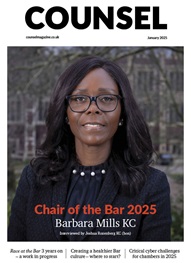*/
Employment – Unfair dismissal. The employment tribunal (the tribunal) had found that the employee had been constructively dismissed as a result of three acts of harassment related to her sex. It upheld her claims for unfair dismissal and harassment. The employee appealed against the dismissal of her claim for compensation for loss of a chance. The employer appealed against the finding that the act of constructive dismissal was in itself an act of harassment. It also appealed against awards made to the employee for injury to feelings, which had been grossed up on the basis that it would be liable to income tax. The Employment Appeal Tribunal dismissed the employee's appeal against the remedy judgment concerning loss of chance and the employer's appeal against the finding of harassment where the tribunal had been entitled to reach those conclusions on the evidence. It allowed the appeal against the finding that constructive dismissal was in itself an act of harassment. On the true construction of the Equality Act 2010, a resignation which amounted to a constructive dismissal did not fall within the meaning of harassment. The employer's appeal against the award of compensation for injury to feeling was allowed where, on the true construction of the Income Tax (Earnings and Pensions) Act 2003, such an award was not liable to income tax.
Employment – Unfair dismissal. The employment tribunal (the tribunal) had found that the employee had been constructively dismissed as a result of three acts of harassment related to her sex. It upheld her claims for unfair dismissal and harassment. The employee appealed against the dismissal of her claim for compensation for loss of a chance. The employer appealed against the finding that the act of constructive dismissal was in itself an act of harassment. It also appealed against awards made to the employee for injury to feelings, which had been grossed up on the basis that it would be liable to income tax. The Employment Appeal Tribunal dismissed the employee's appeal against the remedy judgment concerning loss of chance and the employer's appeal against the finding of harassment where the tribunal had been entitled to reach those conclusions on the evidence. It allowed the appeal against the finding that constructive dismissal was in itself an act of harassment. On the true construction of the Equality Act 2010, a resignation which amounted to a constructive dismissal did not fall within the meaning of harassment. The employer's appeal against the award of compensation for injury to feeling was allowed where, on the true construction of the Income Tax (Earnings and Pensions) Act 2003, such an award was not liable to income tax.


Barbara Mills KC, the new Chair of the Bar, outlines some key themes and priorities
Rachel Davenport, Co-founder and Director at AlphaBiolabs, discusses the role that drug, alcohol and DNA testing can play in non-court dispute resolution (NCDR)
Casey Randall explores what makes AlphaBiolabs the industry leader for court-admissible DNA testing
By Louise Crush of Westgate Wealth Management
A family lawyer has won a £500 donation for her preferred charity, an education centre for women from disadvantaged backgrounds, thanks to drug, alcohol and DNA testing laboratory AlphaBiolabs’ Giving Back campaign
Louise Crush of Westgate Wealth Management highlights some of the ways you can cut your IHT bill
What's it like being a legal trainee at the Crown Prosecution Service? Amy describes what drew her to the role, the skills required and a typical day in the life
Barbara Mills KC wants to raise the profile of the family Bar. She also wants to improve wellbeing and enhance equality, diversity and inclusion in the profession. She talks to Joshua Rozenberg KC (hon) about her plans for the year ahead
Are Birmingham’s Intensive Supervision Courts successfully turning women offenders’ lives around? Chloe Ashley talks to District Judge Michelle Smith
Professor Dominic Regan and Seán Jones KC identify good value bottles across the price spectrum – from festive fizz to reliable reds
Governments who play fast and loose with the law get into real trouble, says the new Attorney General. The Rt Hon Lord Hermer KC talks to Anthony Inglese CB about what drew this boy from Cardiff to the Bar, bringing the barrister ethos to the front bench, and how he will be measuring success